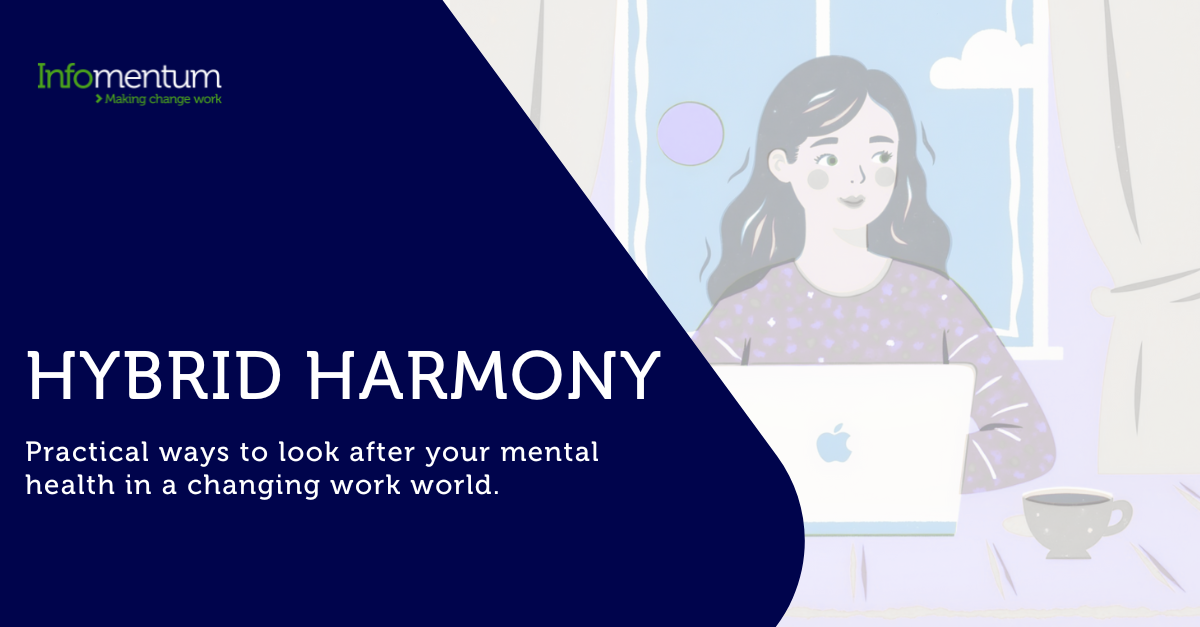In today's fast-paced world, we often hear about the importance of mental health. Yet, how often do we consider the profound connection between our mental and physical well-being? On last week's World Mental Health Day, as we reflected on mental health and its importance, I wanted to shed light on the often-overlooked relationship between mental and physical health, and why taking care of both is essential for leading a fulfilling life.

The mind-body connection
Have you ever noticed that when you’re stressed or anxious, your body feels fatigued? Or when you're physically unwell, your mood declines? This is no coincidence. The connection between the mind and body is not only real but intricate. When one is affected, the other is inevitably impacted.
- Physical health directly affects mental health: Regular physical activity is a well-known mood enhancer, releasing endorphins that combat feelings of anxiety and depression. Exercise also promotes better sleep, increases energy levels and can boost self-esteem - all of which contribute to better mental health.
- Mental health affects physical health: Chronic stress, anxiety, and depression can weaken the immune system, making you more susceptible to physical illness. In the long term, poor mental health can lead to serious conditions like heart disease, diabetes and hypertension. Taking care of your mind is, in many ways, taking care of your body.
Why balance matters
Many of us find ourselves focusing on either mental or physical health in isolation. But the truth is, they need to be in balance to thrive.
Think of your mental health as the foundation upon which everything else is built. No matter how much effort you put into eating well and exercising, if you’re constantly overwhelmed by stress or anxiety, it’s hard to truly feel healthy. Conversely, neglecting your body by avoiding exercise, eating poorly or not getting enough rest can exacerbate mental health challenges.
Steps to achieve a healthy mind and body balance
Finding harmony between your mind and body doesn’t have to be complicated. Here are some simple yet effective steps you can take:
- Prioritise regular exercise: Whether it’s a brisk walk, yoga or weightlifting, physical activity plays a crucial role in mental well-being. Studies have shown that as little as 20-30 minutes of exercise a day can reduce symptoms of anxiety and depression.
- Practice mindfulness: Mindfulness exercises such as meditation or deep breathing are fantastic for calming the mind and reducing stress. Taking just a few minutes a day to focus on your breath and stay present can help you feel more grounded and less anxious.
- Maintain a balanced diet: What you eat affects how you feel. Foods rich in omega-3 fatty acids, vitamins and minerals are known to boost brain health. Incorporating more fruits, vegetables and lean proteins can improve your mood and energy levels.

- Sleep hygiene: Quality sleep is critical to both physical and mental health. A well-rested body is better equipped to manage stress, and proper sleep improves mood and cognitive function. Establish a consistent sleep routine, avoid excessive screen time before bed and ensure your sleeping environment is conducive to rest.
- Build strong social connections: Humans are social beings, and positive social interactions play a significant role in mental well-being. Whether it’s through family, friends or community activities, maintaining strong connections can reduce feelings of loneliness and isolation.
- Seek professional support when needed: Mental health challenges are not something anyone should face alone. If you find yourself feeling overwhelmed, don't hesitate to seek support from a mental health professional.

Mental health in the workplace
As someone who deeply believes in the connection between physical and mental health, it’s important to highlight that this conversation must extend into the workplace. Many of us spend a significant portion of our lives at work, and a mentally healthy workplace is crucial for productivity and employee satisfaction.
- Promote breaks and movement: Encourage employees to take regular breaks to move and refresh their minds. A short walk or a few minutes of meditation can do wonders for creativity and mental clarity.
- Cultivate a supportive environment: Create a culture where mental health is prioritised. Ensure that employees feel comfortable discussing mental health challenges without fear of judgement or stigma.
- Provide access to resources: Offering mental health resources like counselling services, stress management workshops or wellness programs can help employees maintain their mental and physical well-being.
Mental and physical health are not two separate entities but parts of a holistic system that, when nurtured together, can lead to a healthier, more balanced life. Taking care of yourself doesn’t have to be an overwhelming task. Start small - go for that walk, eat that healthy meal or take a moment to breathe deeply. These simple acts, practised consistently, can transform your mental health and, in turn, your overall well-being.

It’s great to work for a company that prioritises your personal well-being and ensures you’re not overburdened with work. I am proud to be a part of Infomentum, a company that organises wellness and social events every month to refresh employees and minimise work stress.
Remember: A healthy mind fuels a healthy body, and a healthy body supports a thriving mind. Let’s keep moving forward together - mindfully, physically, and wholeheartedly.







